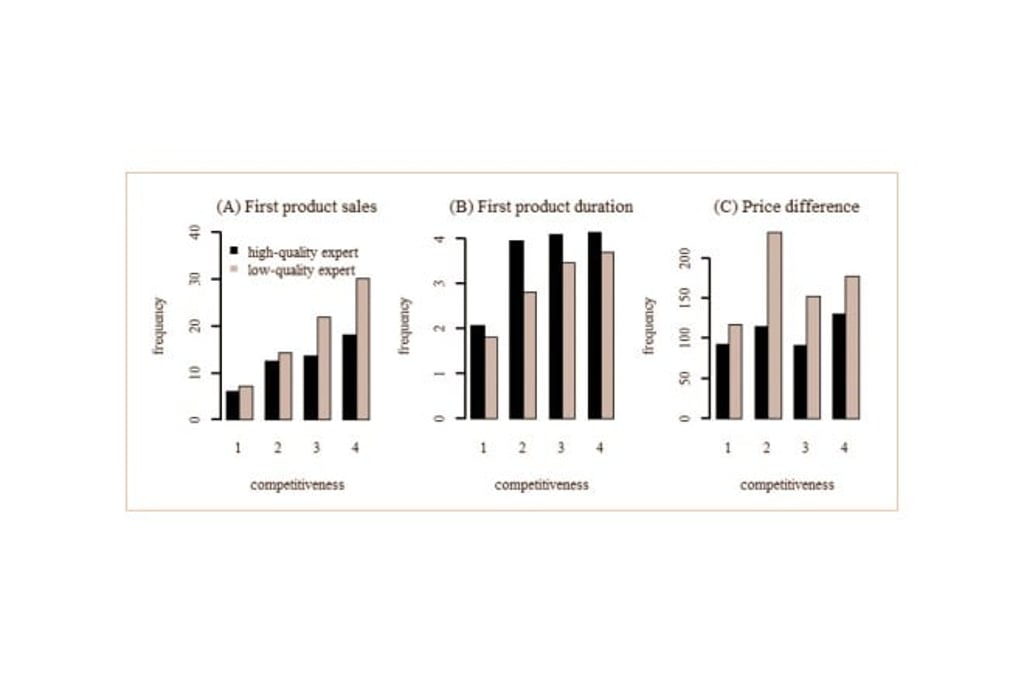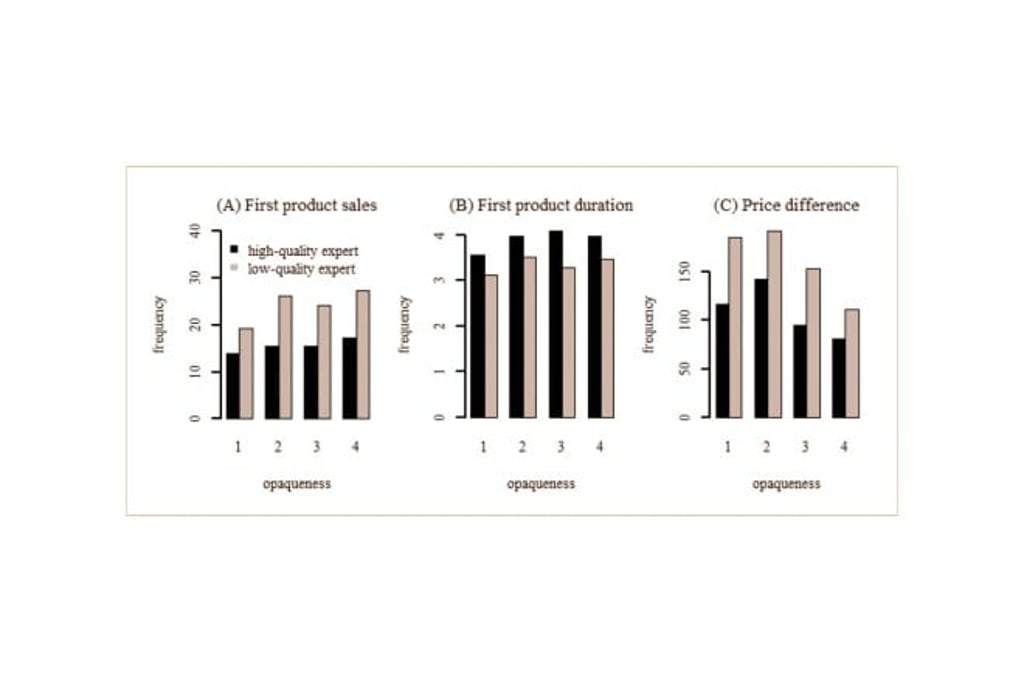Data and Reputation Building on Online Platforms
Studies show online reviews can improve market efficiency and consumer welfare.

[Sponsored Article]
Reputation systems operated by online platforms play an important role in mitigating the problems caused by asymmetric information in internet marketplaces. Successful reputation systems can crowdsource information from consumers and provide a large volume of reviews about product quality, attributes, seller credibility, and so on. Such review data may take the form of ratings, stars, textual comments, badges, or recommended lists.
One important reason for the great success of leading e-commerce platforms, such as Amazon, eBay, and Taobao, is their ability to alleviate asymmetric information by their reputation systems. Reviews recorded by online platforms are valuable public goods that greatly improve market efficiency and consumer welfare. For example, scholars have found that online review platforms improve the welfare of restaurant consumers by US$2.50 per person per meal.1
The Effectiveness of Reputation Systems
The effectiveness of reputation systems depends on two key conditions. First, on the consumer side, reviews are mostly user-generated content and likely to be underprovided due to the nature of public goods. Reviews may suffer from various credibility problems such as loopholes, fraud, manipulation, and bias. Even if reviews are truthful, the information in them usually includes a lot of noise with regards to assessments of quality.
For some markets, reviews written by consumers are based on subjective experiences and may not be applicable to consumers with heterogeneous tastes. For example, many Chinese people do not trust the ratings of Chinese restaurants on Yelp because most reviews are provided by non-Chinese people. In some markets, the nature of credence goods can hinder consumers from leaving informative reviews and learning from others' experiences. Hence, the design of the reputation system and quality transparency greatly affect how much consumers can learn from reviews.
Second, on the firm side, a successful reputation system must provide firms with a sufficiently strong dynamic incentive to build a reputation by accumulating reviews. Firms must be eager to improve their quality and maintain good services because they expect to gain benefits from obtaining good reviews. For example, eBay sellers have a strong incentive to compete for the “eBay Top Rated Seller” badge because consumers are willing to pay an average of 8.1% more to these reputable sellers.2 However, intense competition can slow down review accumulation and reduce the reputation premium, which weakens the firm’s dynamic incentive of building a reputation.
Sketch of the Theory
Consider that a market consists of a mixture of high-quality and low-quality firms. Later-stage consumers learn about quality from reviews provided by earlier-stage consumers through a quality inference function that maps reviews into beliefs about quality. A high-quality firm will adopt an increasing price path because the low initial price leads to more favorable information being released through earlier-stage sales. As a result, the firm will have a higher perceived quality and can increase its price and enjoy the reputation premium in later stages. In contrast, a low-quality firm will employ a declining price path because setting a higher price results in less negative reviews.
The quality inference process of consumers depends on the volume and informativeness of review data. In a market with higher quality opaqueness, consumers update their beliefs by a smaller margin given the same number of reviews. Similarly, intense competition makes setting a low introductory price less effective in promoting sales and generating positive reviews. These two factors reduce high-quality firms' dynamic incentives to build their reputation. Therefore, quality opaqueness and intense competition slow the process of quality inference, and high-quality firms need a longer duration to build a good reputation. Specifically, in a more competitive market, or a market with a poor reputation system, a high-quality firm needs to maintain a low price for a longer duration before it can convince the market of its high quality.
We tested the theory using data from Zaihang (www.zaih.com), a leading online consulting platform in China. Zaihang is a platform in which individuals can register as “experts” in certain areas and provide consulting services (e.g., career development, psychology, education ...) to clients. Consumers search for experts by their service categories and information on webpages of experts, ratings, and reviews left by previous clients. If a consumer wants to purchase the consulting service, he or she makes an appointment through Zaihang. After receiving the service, the client can leave a rating and review the consulting experience. Zaihang focuses on offline services, so the market is segregated into many small markets with different geographic locations and service categories. The intensity of competition and quality opaqueness vary across these markets, which enable us to study their influence on the effectiveness of the reputation system.
We measured the competitiveness of a market by the number of experts providing service products. In Figure 1, groups 1, 2, 3, and 4 represent the first, second, third, and fourth quartiles, respectively, of the number of experts among the 553 markets. There is a clear pattern that, for both high-quality and low-quality experts, the sales and duration of the first product are higher for more competitive markets. Hence, in more competitive markets, experts wait longer to accumulate sales and reviews before they adjust prices.

We used the average length of textual reviews per sale to measure quality opaqueness. In Figure 1, groups 1, 2, 3, and 4 correspond to the fourth, third, second, and first quartile of market opaqueness. Markets with higher quality opaqueness tend to have longer first-product duration, more first-product sales, and a smaller price difference between new and old products. If consumers in some markets have a low tendency to leave reviews, or only write short and uninformative reviews, after purchasing a product, then experts in these markets will not have a strong incentive to accumulate reviews to build their reputation. Hence, we observe the pattern that the process of reputation building is slower and less transparent.

Managerial and Policy Implications
Our findings offer several managerial and policy implications. The fact that intense competition jeopardizes the effectiveness of a reputation system suggests the possibility that platforms can mitigate asymmetric information by entry restriction. By maintaining an appropriate level of competition, high-quality firms will have a strong incentive to participate in the market, offer a low introductory price, and build a reputation. This process, in turn, can increase the overall attractiveness of the platform. If the entry barrier is too low, excessive competition may cause each firm to receive few reviews and lose the incentive to provide a high-quality product. As a result, the platform may be filled with low-quality products and becomes less attractive due to adverse selection. For example, Taobao is often blamed for inferior and counterfeit products.3 In contrast, Tmall, another e-commerce platform by Alibaba, sets up higher entry barriers and has grown much faster than Taobao in recent years.4
Like online platforms, regulators and professional associations face a trade-off between promoting competition and the effectiveness of the reputation system. Inadequate competition results in high prices and reduces the variety of products, but excessive competition may worsen the asymmetric information problem. From a social welfare perspective, the desirable level of competition should strike a balance. Moreover, this optimal level of competition varies with the level of quality opaqueness. For goods with transparent quality, consumers can easily discover high-quality firms and transmit quality information to other consumers. In this scenario, intense competition is desirable from a welfare perspective. However, certain entry restrictions may be desirable for goods with strong quality opaqueness, especially for credence goods. For example, the American Medical Association restricts the number of physicians by means of licensing exams and certificates to maintain a high quality of medical practice. Therefore, platforms and regulators should take heed of the quality opaqueness of different product categories and set entry restrictions accordingly.
Moreover, new sellers have a strong incentive to accumulate reviews than established sellers. On Taobao, many sellers often provide rebates to attract more consumers to experience the product and write reviews.5 The platform can promote new sellers and curb the competition faced by them by granting special advantages in the recommendation system. High-quality new sellers are less likely to be buried if they become more visible with the help of the recommendation algorithm.
Platforms have the natural incentive to develop better reputation systems. In the presence of competition between online platforms, the platform with a higher expected reputation is more attractive to both consumers and high-quality firms. Platforms should understand that quality opaqueness and competition are likely to interact with other factors during the process of quality inference and reputation building. Hence, for large e-commerce platforms carrying goods from vastly different categories, adopting a uniform rating and reputation system may not be desirable. For example, in markets with intense competition and opaque quality, the platform can take actions to reduce opaqueness by granting platform certification and posting experts' comments. The optimal design of the rating system and rating aggregation algorithm should also vary for different categories of products.
References
Fang, Limin. “The effects of online review platforms on restaurant revenue, survival rate, consumer learning and welfare.” Management Science (2021).
Huang, Yangguang, Chenyang Li, and Si Zuo. “Building reputation on online platforms.” Working Paper (2021).
Li, Lingfang, Steven Tadelis, and Xiaolan Zhou. “Buying reputation as a signal of quality: Evidence from an online marketplace.” RAND Journal of Economics (2020).
Resnick, Paul, et al. “The value of reputation on eBay: A controlled experiment.” Experimental Economics (2006).
1. Fang, Limin. “The effects of online review platforms on restaurant revenue, survival rate, consumer learning and welfare.” Management Science (2021).
2. Resnick, Paul, et al. “The value of reputation on eBay: A controlled experiment.” Experimental Economics (2006).
3. Fortune.com, Why Alibaba Can’t Complain About Its Return to the ‘Notorious’ Counterfeit Market List, Dec 22, 2016
4. Fortune.com, Alibaba Shows Resilience And Posts Blowout Revenue Growth Of 61% YoY, Aug 23, 2018
5. Li, Lingfang, Steven Tadelis, and Xiaolan Zhou. “Buying reputation as a signal of quality: Evidence from an online marketplace.” RAND Journal of Economics (2020).